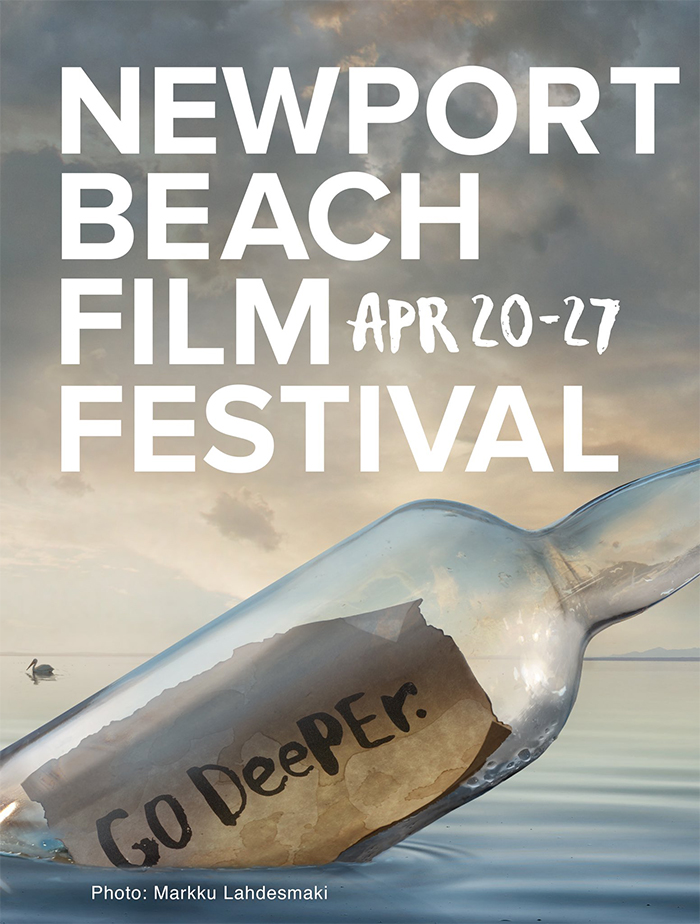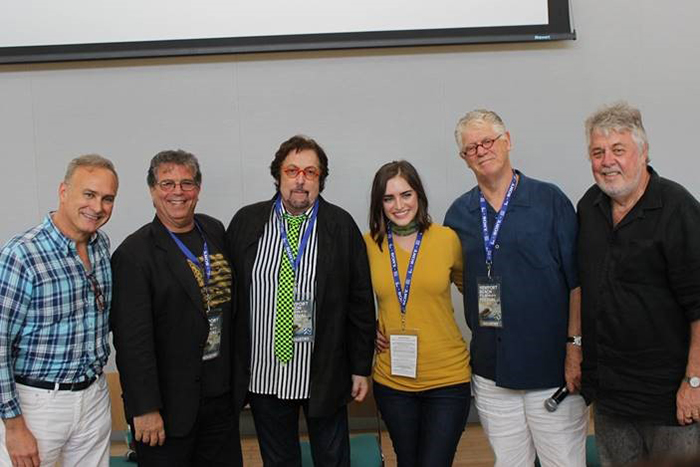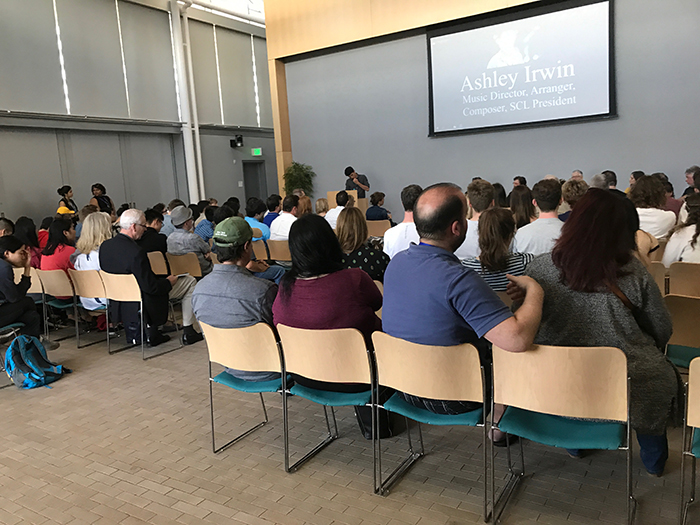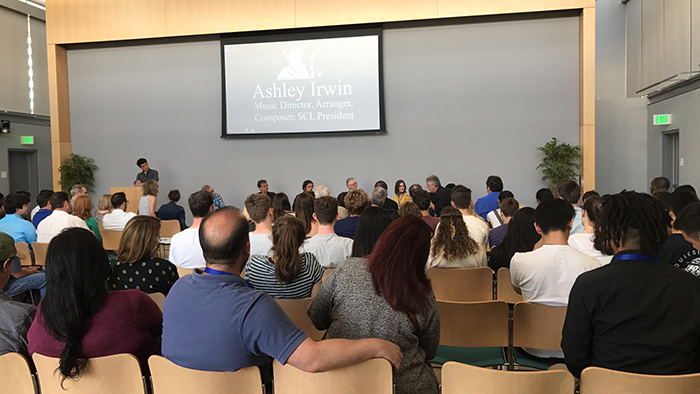Festivals - NBMM 2017 - Music in Film Panel Review
By Mulder, Newport Beach, Civic Center, 22 april 2017

The soundtrack of a film. How do all the music components work in harmony in a film? The music contribution to a film is made up of several facets working together to create the music experience to a score. From the original songs that we hum when leaving a film to the scores that tugs at our emotions, film music professionals will explain how they all work together, and sometimes not, to contribute to the musical elements of a film.

The panelists were:
- Stephen Bishop – (Oscar nominated songwriter) “Separate Lives” ”It Might Be You” TOOTSIE, “On and On” CARELESS,
- Curt Sobel (Music Supervisor, music editor nd composer) RAY, GET DOWN, RISKY BUSINESS
- J. Peter Robinson (Composer, musician/arranger) WAYNES WORLD & COCKTAIL to HEAVEN’S FLOOR (Playing at NBFF)
- Mateo Messina (Composer) JUNO, to current TV shows Superstore, Graves, Casual and the film FIXED (Playing at NBFF)
- Brittany Dubay (music editor/coordinator) Bates Motel, Sneaky Pete, MAYHEM
- Moderated by.. Ray Costa – Former award-winning journalist, founder and publicist of Costa Communications representing, Emmy, Oscar, Grammy and Tony winning composers and songwriters.
On Sunday, April 23rd, as a part of the Newport Beach Music Festival, a panel discussing the various roles of music within the film industry took place at the Newport Beach Civic Center. The panel consisted of Curt Sobel (Music composer, supervisor, and editor), Stephen Bishop (Singer/Songwriter), J. Peter Robinson (Performer, arranger, and composer), Brittany Dubay (Music editor and coordinator), and Ashley Irwin (Music director, arranger, and composer). Collectively, the group’s resume represents an impressively prestigious range of musical works, both within and outside of the film industry, since the 70s! The moderator of the event, Ray Costa, an equally decorated professional within Marketing and PR, utilized his expertise and understanding of the film music realm to provide for a cohesive, thoughtful, and informed series of questions and talking points that helped engage the packed room from the beginning of the Q&A until the very end.
Part of the welcoming sense of inclusivity that was found in the room came from both Mr. Costa and the panelists’ willingness to leave no stone unturned- that is, the questions and their responses from each panelist was consummately thorough: a lot of care and attention was invested towards defining and identifying differences between job titles (music supervisor versus editor, versus coordinator, as an example), as well as contextualizing how each role has developed and evolved over time due to changes in technology and artistic/stylistic aesthetics. The approach to addressing each question and talking point brought up by Mr. Costa proved to be extremely effective because it also gave opportunities for audience members who weren’t as well versed with music terms, roles, or processes within the film/visual media industry to sufficiently grasp the breadth of the panelists’ answers and how it related to every other moving part within the production process.
The reoccurring theme throughout the questions and the panelists’ responses centered around the interconnectivity found between each of the music roles in film. When people think of music-related positions within film and other visual media, the first and, perhaps, only role that many can think of is the music composer, whom writes the score for the film, TV show, or even video game! Unfortunately, this notion forgets to include all the other equally important individuals who are working behind the scenes with a variety of music/sound components of the visual work, usually before the composer is introduced and incorporated into the project, though. As an example, the music supervisor of a film is seen as the liaison between the production team and the composer/music team as well as being in charge of managing music-related contracts, licenses, and negotiations. On top of all of this, the music supervisor even has some creative authority- being able to lead A&R scouting for a film/visual media work and even discuss the creative aesthetics and goals of the director and producer to the composer. Without a music supervisor, a film would be unable to secure the necessary legal rights needed to include desirable source music (such as a popular hit from a well-known band) or maintain cohesion and unity between the source music, score, and what the audience sees on screen. In short, without the music supervisor, a film would not have any music, period!
By the end of the panel, aside from gaining a deeper understanding of the intricacies of music and its effective inclusion into film, everyone (audience and panel alike) had lots of fun. Between sharing and listening to stories covering first-job experiences and watching clips of the panelists’ previous works, it was easy to forget about the insightful discussion that was had throughout!
Photos and Video : GeorgeJS (George Silva)



